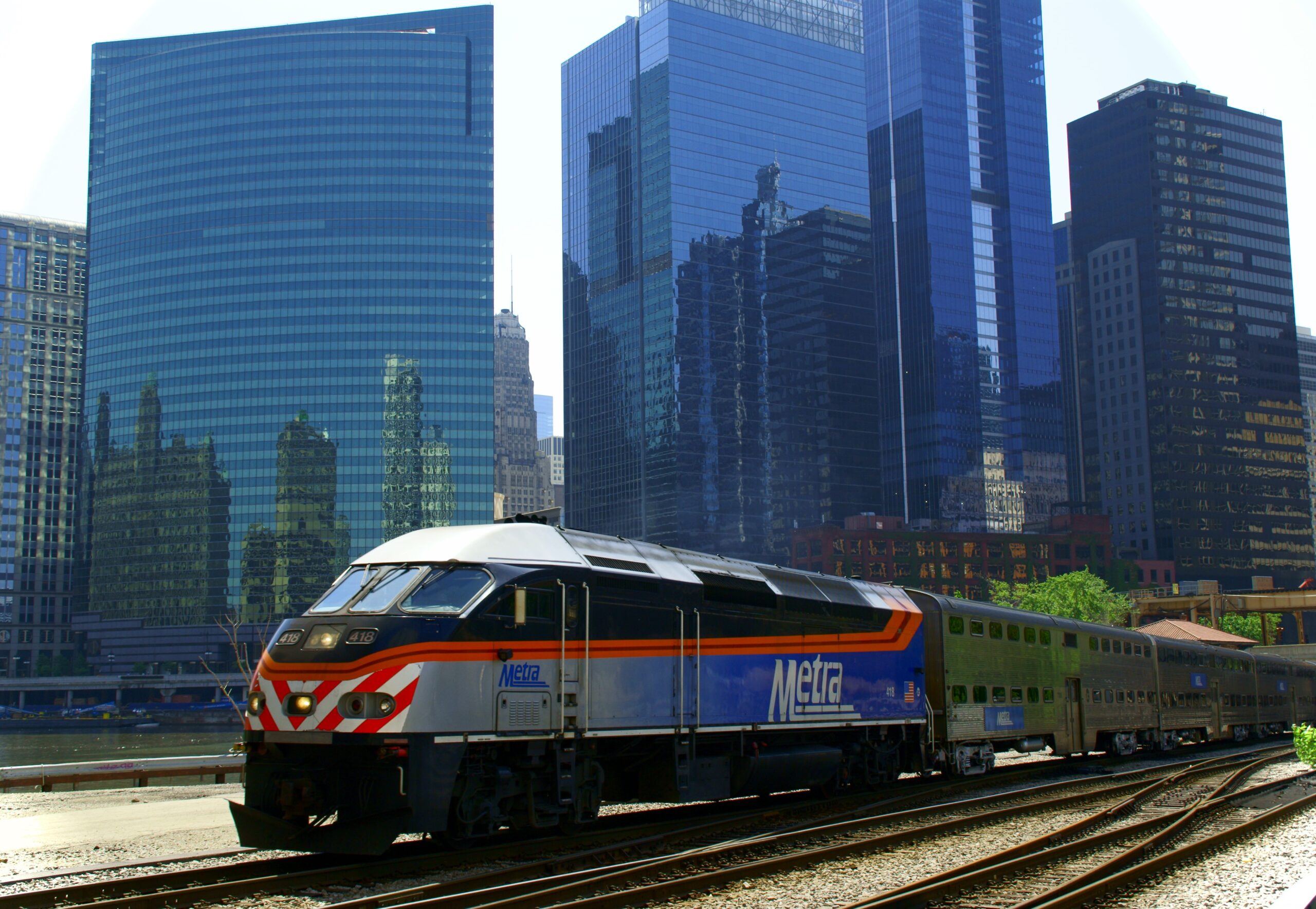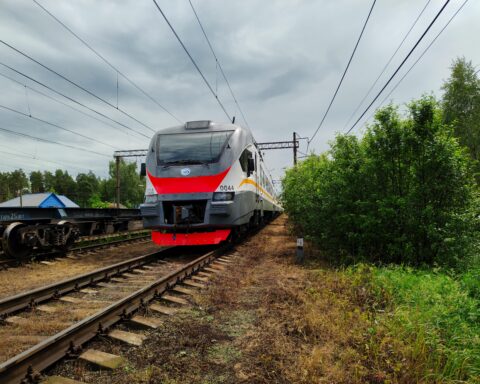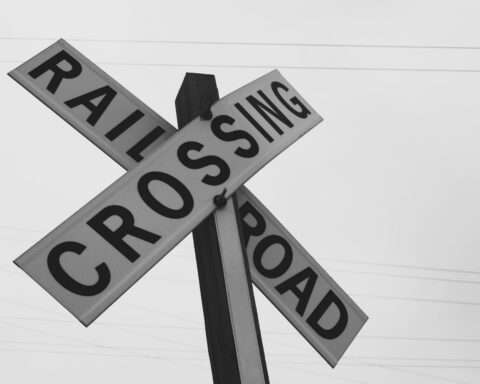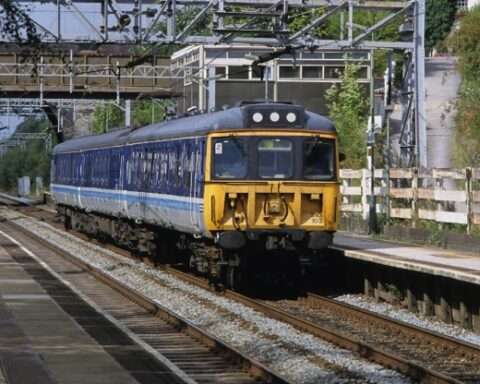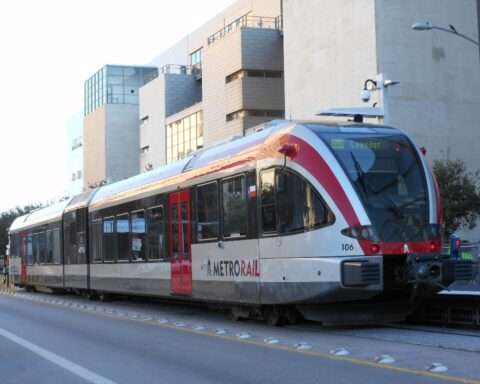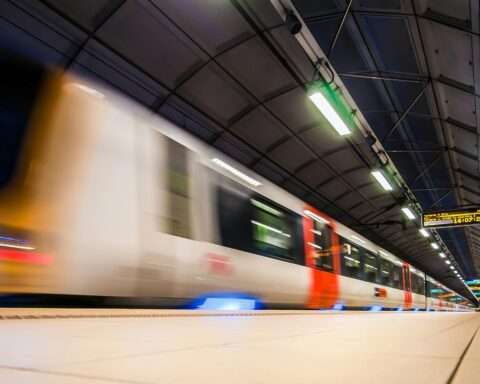Chicago’s commuter rail system is looking to increase its budget while avoiding any increase in ticket prices. The rail system Metra has proposed a $1.135 billion operating budget for 2025, up about 3% from 2024, relying on local tax revenue and federal funds to cover rising expenses without increasing fares.
Metra serves six counties in Northeast Illinois and extends to Kenosha, Wisconsin, connecting more suburban cities to downtown Chicago with 3,700 miles of tracks, making it the nation’s largest commuter railroad system by track mileage.
With 11 rail lines, 243 stations, and a pre-pandemic ridership of 281,000 daily passengers, Metra plays a crucial role in the region’s transportation infrastructure. And as of mid-2024, ridership has rebounded to 60% of pre-COVID levels, with the systems projected to keep growing.
But the system also has a major repair backlog, which stands at a daunting $12.1 billion.
Metra is looking to strike a delicate balance between maintaining affordable fares and funding modern, efficient operations. With an increasing emphasis on public transit ridership as a way to reduce traffic congestion and planet-warming vehicle emissions, public transit systems nationwide face the challenge of upgrading infrastructure while balancing budgets.
Metra’s approach looks to preserve ridership growth, projected at 7%, while keeping up with the need to upgrade rail infrastructure.
To achieve this, Metra’s 2025 budget draws from various revenue streams. Passenger fares are projected to contribute $184.2 million, based on an estimated 39 million rides. However, the lion’s share of funding will come primarily from sales taxes, which is expected to provide $592.5 million. Another $238.4 million in federal COVID-19 relief funding will be utilized to balance the budget.
A significant portion of the proposed budget is allocated to operations and general maintenance. The plan earmarks $1.07 billion for these services, representing a 4.1% increase from 2024. This includes funding for transportation, engineering, and mechanical operations.
Additionally, Metra’s capital program designates $366.4 million for 108 improvement projects in 2025, focusing on modernizing parts of the system that fall outside standard maintenance operations. These include new railcars, zero-emissions trainsets and car rehabilitation programs.
The budget also addresses staffing needs, with additional positions planned in dispatching, signal maintenance, training and cybersecurity. These additions are designed to enhance service reliability and system safety.
The 2025 budget proposal also reflects Metra’s strategic shift towards a “regional rail” service model, which will provide more frequent service throughout the day, moving beyond the traditional focus on peak commute hours. This will allow passengers to use the rail for more travel options instead of just primarily serving the workforce.
The budget proposal is now subject to public scrutiny. Metra has scheduled public hearings across the region for November 6 and 7, 2024, including virtual participation options. Stakeholders can provide feedback through in-person comments, virtual participation, written submissions, and even by leaving a voicemail.
Following public feedback, Metra’s Board of Directors will review the proposed budget, with a vote expected in November 2024. Following board approval, the budget will be submitted to the Regional Transportation Authority for final authorization, anticipated in December.
Photo courtesy Douglas Rahden



